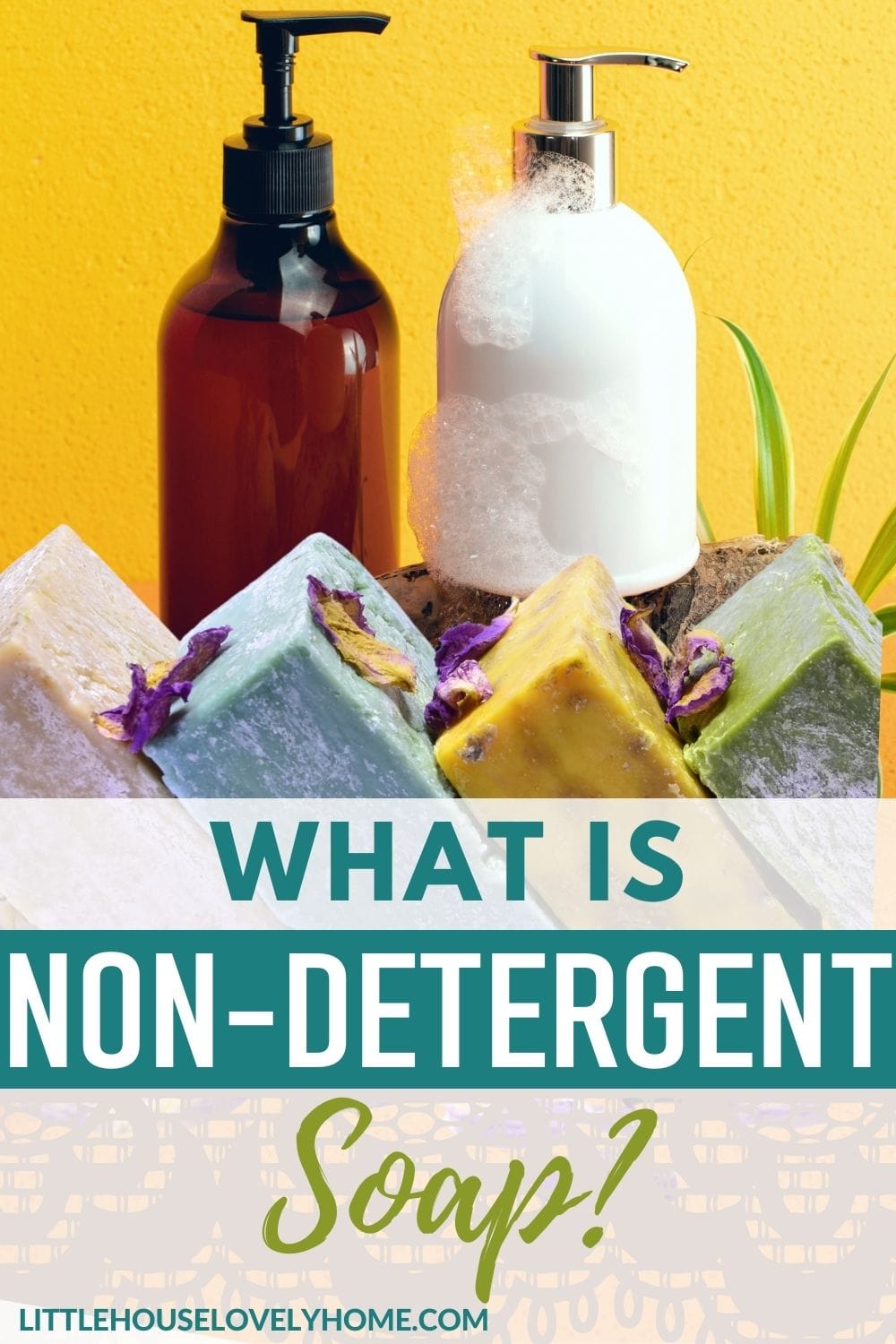What is non-detergent soap? It’s a question that many people ask these days, as more and more people are looking for natural alternatives to traditional soaps.
Non-detergent soap is made without any artificial or chemical additives, making it a better choice for those with sensitive skin.
In this blog post, we will discuss the benefits of using non-detergent soap, as well as how you can use it!
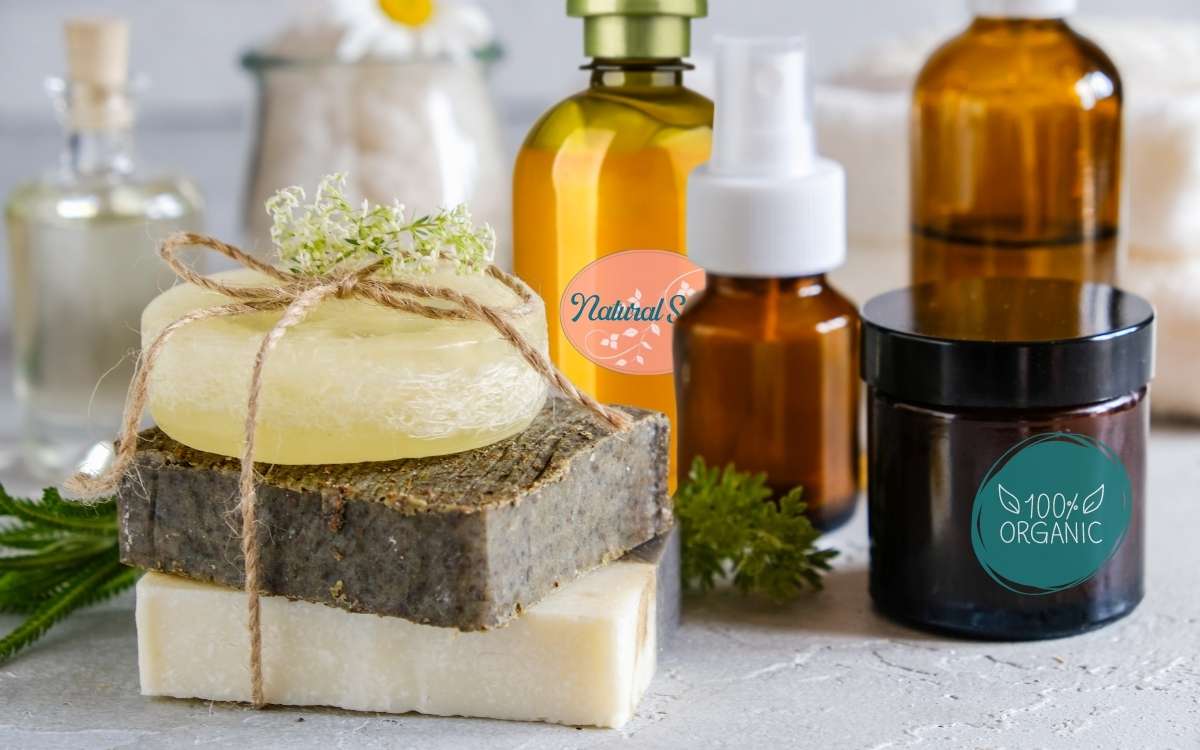
What Is Non-Detergent Soap?
Non-detergent soap is a natural soap that doesn’t contain artificial or chemical additives.
Its popularity has grown in recent years as people become more aware of the harmful effects of chemicals on the body and the environment.
Conventional soap is made out of petroleum-based ingredients and can be harsh on the skin. These ingredients also pollute our waterways when they are washed down the drain.
They take up a majority of shelf space in major stores, but non-detergent soap is slowly gaining ground.
What is Non-Detergent Soap Made Of?
Non-detergent soap is made from natural ingredients like olive oil, coconut oil, and shea butter. These ingredients are gentle on the skin and won’t strip away its natural oils.
Here are some common forms of non-detergent soap alongside their main ingredients:
- Marseille Soap: Natural lye, water, vegetable oil
- Fels-Naptha Soap: Sodium tallowate, sodium palmate, sodium cocoate, water, talc
- Castile Soap: Olive oil
- Aleppo Soap: Laurel oil and olive oil
These ingredients have been used to make soap for centuries. They are safe for both humans and the environment.
Benefits of Using Non-Detergent Soap
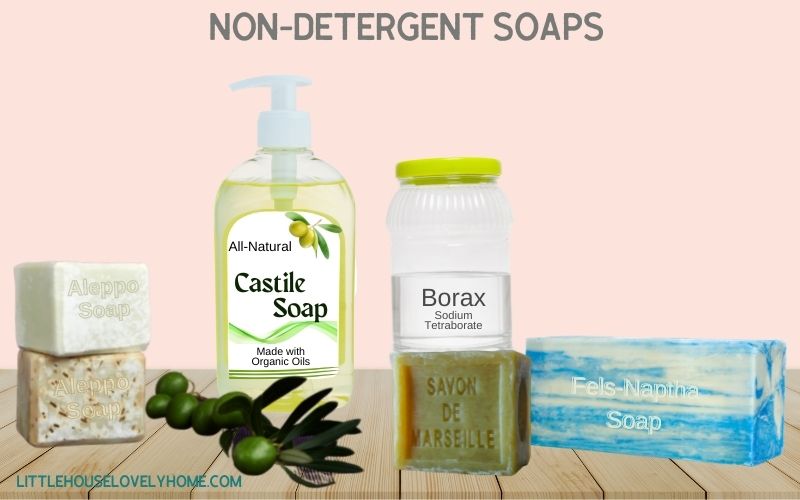
There are many benefits to using non-detergent soap. Here are the biggest ones:
Gentle on the Skin
Non-detergent soap is made with natural ingredients that are gentle on the skin. This makes it a great choice for people with sensitive skin.
It’s been shown that castile soap can be used to treat eczema and psoriasis.
Environmentally Friendly
Non-detergent soap is made without any artificial ingredients or chemicals. This makes it a more environmentally friendly choice than conventional soap.
When you use non-detergent soap, you can rest assured that you’re not contributing to water pollution.
It’s Biodegradable
Non-detergent soap is made from natural ingredients that are biodegradable. This means that it won’t pollute our waterways when it’s washed down the drain.
Biodegradable soaps break down by themselves, without the need for harsh chemicals. It takes about six weeks for a biodegradable soap to break down.
In contrast, traditional soaps can take centuries to decompose and also leave small amounts of plastics in our waterways and oceans.
It’s Non-Toxic
Non-detergent soap is made without any harmful chemicals. This makes it a safer choice for both you and the environment.
You can feel better using these products around children, pets, plants, and natural environments.
This doesn’t necessarily mean that non-detergent soaps are food safe. If you or anyone else ever consumes a large amount of non-detergent soap, it’s best to call a doctor immediately.
It Can Be More Affordable
Since non-detergent soap is often concentrated, you may only need a small amount to get the job done. This can save you money in the long run, as you won’t have to purchase soap as often.
What Can I Use Non-Detergent Soap For?
Detergents are usually used for cleaning clothes, dishes, and other surfaces. However, non-detergent soap can be used for all of these purposes as well!
To clean your clothes in your washing machine, you can purchase or make a concentrated non-detergent soap. You can also use non-detergent soap to hand wash your clothes.
To clean dishes, you can also purchase or make a concentrated non-detergent dish soap. You can also use regular non-detergent soap, but you may need to use a little more to get the job done.
To clean surfaces like countertops and floors, you can make a DIY cleaning solution with water and non-detergent soap.
Many detergent-free cleaners can be used for many different purposes. For example, Dr. Bronner’s Castile Soap can be used for cleaning your body, dishes, laundry, and floors.
List of Non-Detergent Soaps
Not sure where to start? Here’s a list of some popular non-detergent soaps:
- Dr. Bronner’s Castile Soap
- Puracy Natural Liquid Hand Soap
- Seventh Generation Liquid Laundry Detergent
- ECOS Earth Friendly Products Dishmate Liquid Dish Soap
- Method Foaming Hand Soap Refill
- Palmolive Soap
- Borax
These brands are just a start – there are many more non-detergent soaps on the market! You can find them online or at your local health food store.
What Are Detergent Examples?
Dishwashing liquids, laundry detergents, and shampoos are all examples of products that contain detergent.
While non-detergent soaps are made with natural ingredients, detergents often contain harsh chemicals. These chemicals can be harmful to both humans and the environment.
Some common ingredients found in detergents include:
- Sodium Lauryl Sulfate (SLS)
- Ammonia
- Bleach
- Phosphates
These ingredients can cause skin irritation, respiratory problems, and water pollution. In contrast, non-detergent soaps are made with natural ingredients that are gentle on the skin and environment.
Natural Soap Ideas for Showering
If you’re looking for a more natural way to clean your body, try using non-detergent soap in the shower. Here are some ideas:

Dr. Bronner’s Peppermint Liquid Soap: This refreshing soap can be used as a body wash, shampoo, and toothpaste!

Puracy Natural Body Wash: This body wash is made with organic ingredients and is sulfate-free.

Burt’s Bees Body Wash: This body wash is made with honey and shea butter to moisturize your skin.
How to Make Your Own Body Wash
If you’re feeling adventurous, you can also make your own body wash! Here’s a recipe to get you started:
Ingredients:
- ¼ cup non-detergent soap (like Dr. Bronner’s Castile Soap)
- ¾ cup water
- ½ teaspoon glycerin
- A few drops of essential oil for a natural scent
Instructions:
Mix all ingredients together in a bowl or jar. Use as you would any other body wash.
Store in a cool, dark place and use within six months.
Natural Alternatives to Laundry Detergent
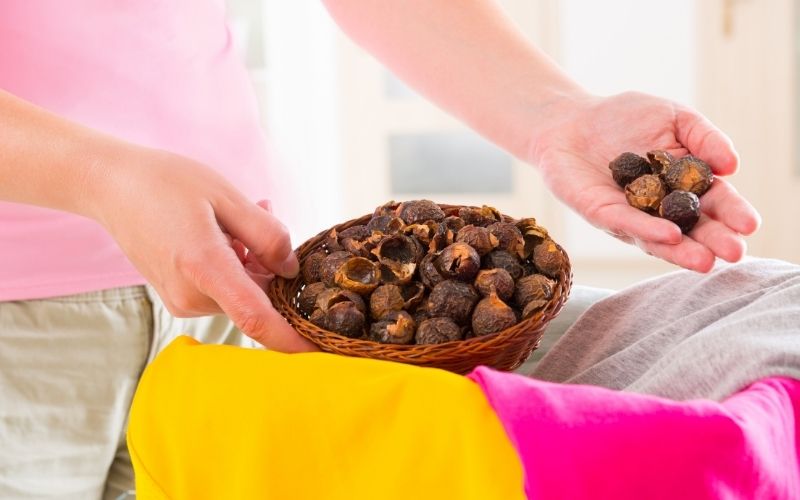
If you’re looking for an alternative to laundry detergent, there are many options available. Here are some of the most common:
1. Soap Nuts
These berries contain a natural soap that can be used to clean clothes, similar to how non-detergent soaps work. Simply add a few soap nuts to your washing machine and let them do their job!
You can get soap nuts from your local health food store or online.
2. Baking Soda
Baking soda is a natural cleanser that can be used in the laundry. Add ½ cup of baking soda to your washing machine in place of traditional laundry detergents.
You can also use baking soda to spot treat any stains on your clothing. Just leave the baking soda mixture to sit on your stain for a few minutes before laundering as usual.
3. Vinegar
Vinegar can be used as a natural fabric softener and color brightener. It can also help to reduce odors and static cling.
Simply add ½ cup of vinegar to your washing machine along with your clothes.
4. Washing Soda
Washing soda is a natural cleaner that can be used in the laundry. It’s similar to baking soda, but it’s more alkaline and can be more effective at removing stains.
It’s easy to use this product with your clothes. Read the instructions and add the recommended amount to a load of clothing for the best results.
5. Borax
Borax is a natural cleaning product that has been used for centuries. It’s inexpensive and can be found at most hardware stores.
To use it in the laundry, add read the instructions on the box and add the appropriate amount to your load of clothes.
Alternatives to All-Purpose Cleaners
Non-detergent soaps can be used to clean almost any surface of your home, from countertops to floors. Here are some popular detergent-free cleaning products:
1. Lemon Juice
This natural solution is easy to find at any grocery store. Simply mix lemon juice with water and use it to clean your surfaces.
Not only does the acid in the juice help to break down dirt and grime, but it also leaves your home smelling fresh and clean!
2. Baking Soda
This natural product is a great all-purpose cleaner. It can be used to clean countertops, appliances, floors, and more. It can also help to remove stubborn stains because it’s mildly abrasive.
Mix baking soda with water to create a paste, then use it to scrub your surfaces. Wash the surface with water afterward for a clean and streak-free finish.
3. Vinegar
Vinegar is another great all-purpose cleaner for those avoiding non-detergent soaps. It’s inexpensive and can be used to clean a variety of surfaces in your home.
Simply mix vinegar with water in a spray bottle and use it to clean your surfaces.
Don’t worry about the vinegar smell, it will dissipate naturally, and remove any additional odors.
It’s most common to use white vinegar, but you can also use apple cider vinegar or distilled vinegar.
4. Castile Soap
A laurel oil castile soap will leave your home clean and free of harmful chemicals. You can use it to clean surfaces, floors, windows, and more.
It’s gentle enough to use on most surfaces but tough enough to get the job done.
To make a cleaning solution, mix ¼ cup of castile soap with water in a spray bottle. Use it to clean your surfaces, then wipe them down with a damp cloth.
5. Hydrogen Peroxide
Hydrogen peroxide is a natural bleaching agent that can be used to clean surfaces and remove stains. It’s also great for disinfecting surfaces.
To use it, mix hydrogen peroxide with water in a spray bottle and use it to clean your surfaces.
Be sure to test the solution on an inconspicuous area first to make sure it doesn’t discolor or eat away at your surfaces.
This potent cleaner should be kept away from young children and pets in the house, especially if it is a stronger concentration.
6. Tea Tree Oil
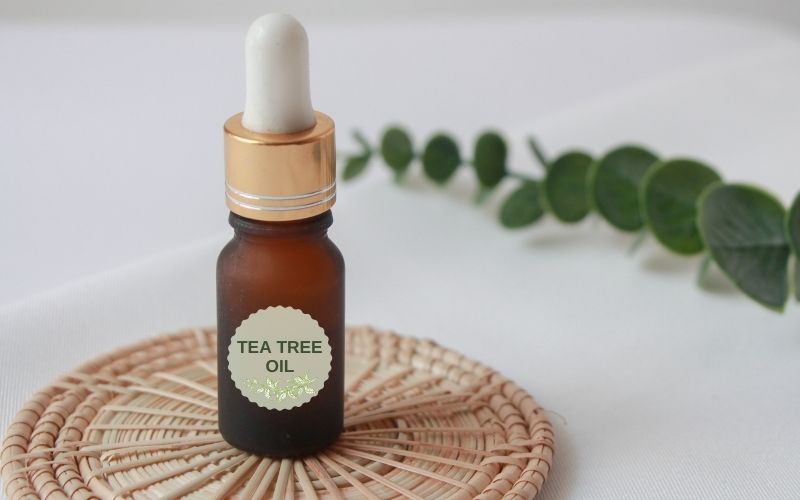
This oil has been used to disinfect and clean surfaces for centuries. It’s a natural antiseptic that can be used to clean a variety of surfaces in your home.
Simply mix tea tree oil with water in a spray bottle and use it to clean your surfaces.
You can also put a bit of tea tree oil on a rag and use it to clean your surfaces if you want a polish for your wood surfaces.
How To Make Insecticidal Soap with Non-Detergent Soap
If you’re looking for a natural way to get rid of pests, insecticidal soap is a great option.
You can make your own at home with non-detergent soap and water. Simply mix the two ingredients together in a spray bottle and use it to kill bugs on contact.
You can use any of the above-mentioned non-detergent soaps to make insecticidal soap. You can also add certain oils that help to repel bugs, like lemon or eucalyptus oil.
You can use this mixture on your plants, patio, and any other areas where bugs are a problem. Be sure to test it on a small area first to make sure it doesn’t damage your surfaces.
If you don’t want to take the time making insecticidal soap, you can also purchase insecticidal soap at most hardware stores.
The Garden Safe Insecticidal Soap is a great option that is ready to go and won’t harm any people, pets, or plants.
The Bottom Line
As you can see, there are many benefits to using non-detergent soap. Give it a try and see for yourself! You may be surprised at how well it works.
Make sure to test any cleaning solutions on an inconspicuous area before using them on an entire surface. This will help to ensure that you don’t damage any items in your home.
Now that you know all about non-detergent soap, go forth and clean! Your home will thank you. Have you ever used non-detergent soap? What was your experience? Share in the comments below!
